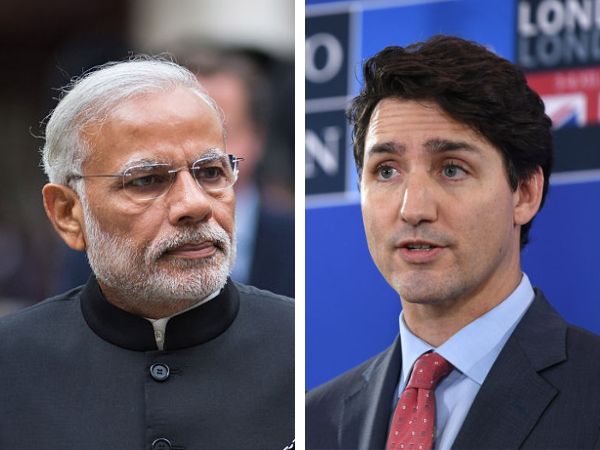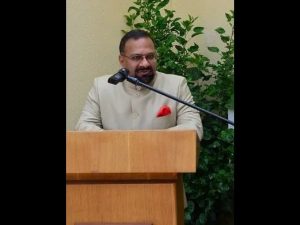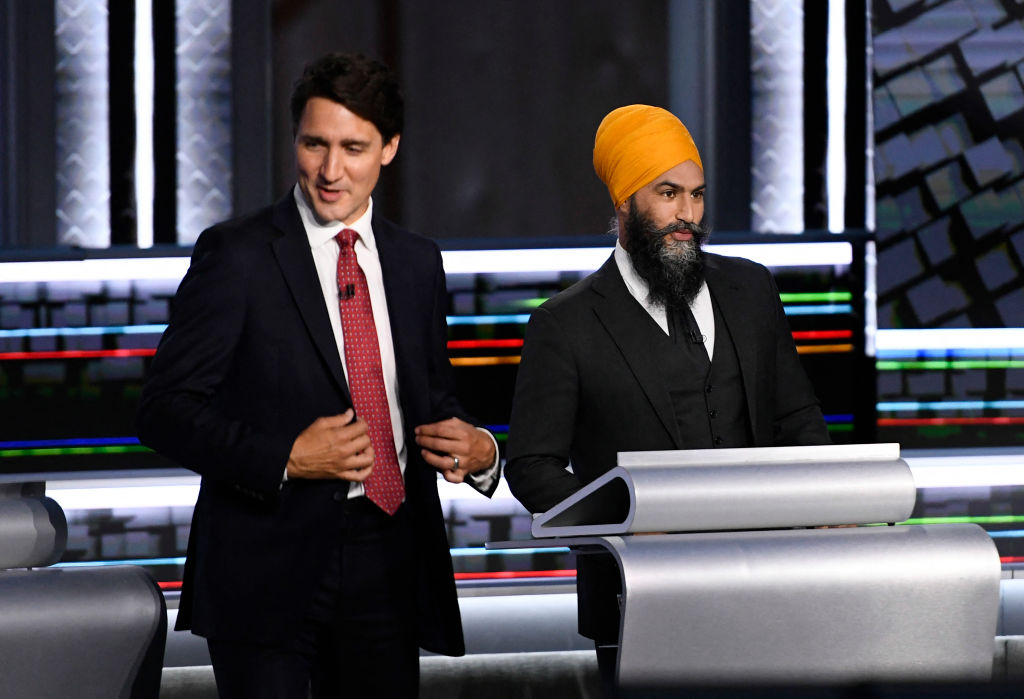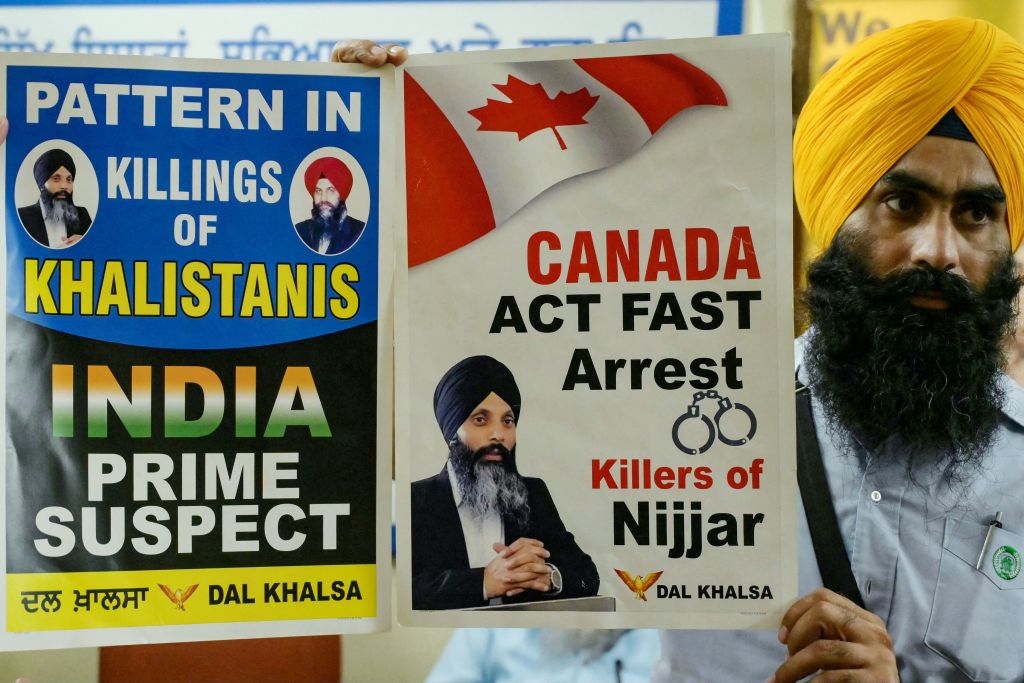- Saturday, July 27, 2024
It is unfortunate that domestic political compulsions of Trudeau have led the India-Canada relationship to such an abyss, writes former Indian ambassador Sushil Kumar Singhal.

By: Ambassador Sushil Kumar Singhal
THE deteriorating relationship between India and Canada hit rock bottom earlier this week as Canadian prime minister Justin Trudeau told his parliament’s House of Commons that his government was pursuing ‘credible allegations’ regarding the alleged role of Indian agents in the murder of Canadian pro-Khalistan leader Hardeep Singh Nijjar in June this year.
Since then, the two countries have expelled each other’s senior diplomats, put out terse travel advisories in a language normally used in adversarial relations and continued to have public spat including — even accusing each other of impinging the other’s sovereignty.
The cracks in the relationship between India and Canada only began to become noticeable during the tenure of Canada’s Liberal government led by Trudeau particularly since he took support of the New Democratic Party (NDP) to prop up his minority government.

Interestingly, the NDP is led by Jagmeet Singh, known to be a Khalistan sympathiser Historically, the two countries have been natural partners with longstanding friendly ties as large democracies that pride themselves on being part of crucial international organisations from the United Nations, World Bank and G20 to the Commonwealth of Nations and the Asian Development Bank.
Economic cooperation is also an important vertical of the relationship and amid the current diplomatic row, talks of a potential free-trade agreement between India and Canada to further enhance the bilateral trade presently worth more than US$ 8 billion has become a casualty.
Even during the India-Canada Strategic Dialogue held earlier this year, the two countries were enthusiastic about inviting investment from Canadian pension funds to India. The most significant facet of this relationship is of course the long-standing people-to-people contact between the two democracies.
Canada is home to about 1.4 million people of Indian origin mostly from the northern state of Punjab.
Canadian universities are very popular with Indian students, and they constitute almost 40 per cent of the 800,000 foreign students studying there. They not only pump billions into the Canadian economy but also support the Canadian gig economy and real-estate sector.
Despite such strong foundations for an amicable relationship, Trudeau’s political compulsions have regrettably turned the two friendly countries into adversaries at a time when both are part of a group of countries that are facing external challenges.

Trudeau will face the national ballots in the next two years amidst his falling popularity as confirmed by a recent Ipsos poll and challenging living conditions in Canada.
His national approval rating is at 31 per cent, while his disapproval rating stands at 63 per cent. The support of the NDP is crucial for Trudeau to stay in power. Due to this domestic compulsion, Trudeau is forced to complain about “sovereignty” and hide behind the defence of freedom of expression to defend Khalistani extremist activities on his country’s soil.
India has consistently provided Canadian authorities with specific names and substantial evidence regarding Khalistani separatist activities and provocations originating from the Canadian territory.
Ottawa, however, has brushed aside India’s concerns despite the rise in threats of violence against Hindus in Canada. Further, even visible posters and images featuring outright symbols of aggression and separatism in India have not led Canada to give India’s complaints the due weightage they deserve.

The Canadian government has spoken extensively about the rule of law in the past week. It must, thus, be noted that the rule of law does not grant a nation any authority to engage in actions on its territory that undermine the sovereignty of friendly nations. The ambit of freedom of speech does not include freedom to threaten others’ views and/or indulge in violence to silence them.
It is unfortunate that domestic political compulsions of Trudeau have led the India-Canada relationship to such an abyss. Even at the G20 summit held in India earlier this month, the strained relationship between the two countries was visible as their prime ministers did not hold formal bilateral talks.
Instead, prime minister Narendra Modi and Trudeau raised matters of serious concern with each other on the sidelines of the summit. As it is a common knowledge now, one such concern was the Canadian complaint about the perceived role of India in Nijjar’s death. Canada even briefed the UK, Australia, US, France and other countries about its allegations, although it currently lacks any public backing from its partners in the Five Eyes and G7.

The hesitation of other countries to involve themselves in the rift is not surprising, considering the fact that the evidence is sketchy, and Canada has not shared it in public. Only some calculated leaks are in circulation with nobody vouching for their authenticity.
As I mentioned at the beginning, India and Canada share the same ideals and ethos and have similarities of views on most of the international issues engulfing the globe. The two countries continue to have a
number of common interests, with India being an important player in the West’s Indo-Pacific strategy.
Thus, it is imperative that back-channel diplomacy should be employed that would allow a flexible approach that could take into account legitimate grievances of both New Delhi and Ottawa. The India-Canada relationship must not become a sacrificial lamb at the altar of short-term political expediency.
Ambassador Sushil Kumar Singhal is a former Indian envoy who has served in multiple countries such as Belgium, Tanzania, Bangladesh, Hungary and Kenya as well as in Angola and Papua New Guinea with concurrent accreditation to Equatorial Guinea and Sao Tome. Currently serving as a senior legal consultant in New Delhi, Amb Singhal is also an associate member of the Institute of Company Secretaries of India.